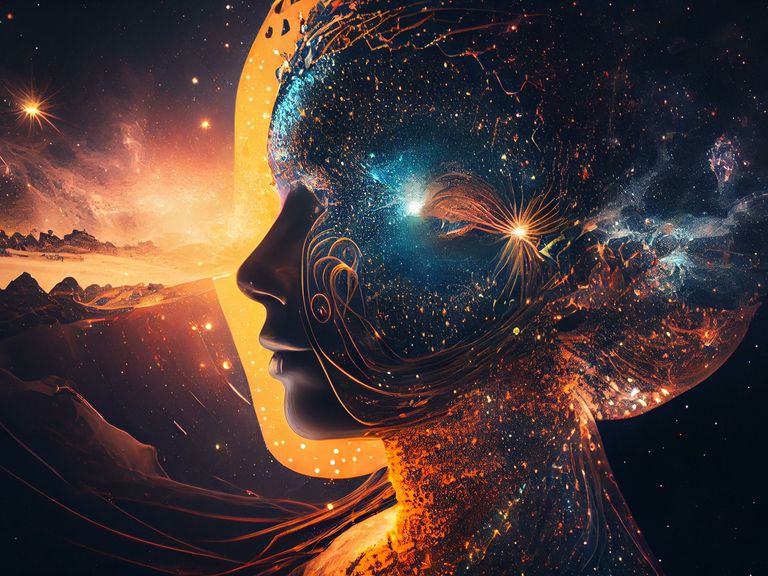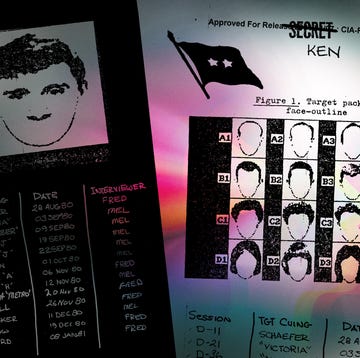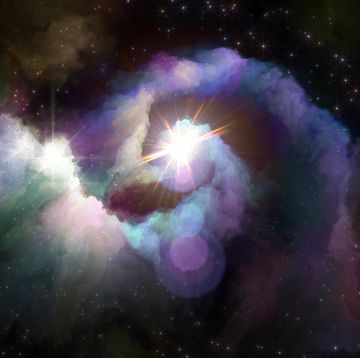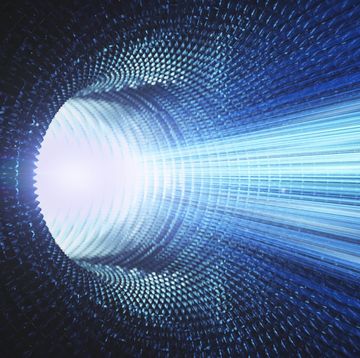- Panpsychism, an old theory saying that everything has a mind or mind-like quality, is regaining momentum among scientists.
- For some scholars, panpsychism is metaphysical mumbo-jumbo, and consciousness an illusion of a mind that has exceeded its natural capacities.
- But panpsychists insist the world is fully awake and conscious—you are conscious, rocks are conscious, the sun is conscious.
How would you react at the thought that the very chair you are sitting in is made up of tiny particles that harness some type of rudimentary experience? Actually, how would you feel if we told you that the potted flower next to your chair, as well as your brain and the four walls surrounding all of you—each and every one—possess an internal mental characteristic? What if the world around you was not an inanimate stage, upon which you, the owner of a soul, played the lead role, but was instead fully awake–just like you? Let’s hear it from panpsychism, the theory that everything has a mind or a mind-like quality.
This Far-Out Idea Is Having a Head-Scratching Moment
The concept of panpsychism has been around for hundreds of years. Italian philosopher Francesco Patrizi coined the term in the late 16th century. He combined the Greek words παν (pronounced “pan” and meaning everything) and ψυχή (psyche, soul or mind) to make mention of a distinctive soulfulness inherent to each and every order of creation. The concept goes way back though, to ancient Greece, when astronomer, mathematician, and pre-Socratic philosopher Thales said “that everything is full of gods” and one of the world’s best-studied philosophers, Plato, said that the world is indeed a living being endowed with a soul and intelligence.
In the 19th century, panpsychism took off in the West, championed by the likes of the great philosopher of pessimism, Arthur Schopenhauer, and the father of modern psychology, William James. Then came the philosophical movement that emerged in Vienna in the 1920s, logical positivism: the idea that scientific knowledge—empirically proven knowledge—was the only kind of acceptable knowledge—the rest being metaphysical mumbo-jumbo. It was game over for panpsychism.
Until recently.
The inability of empirical sciences to solve the hard problem of consciousness—why and how matter gives rise to the experiences of consciousness—has recently rekindled interest in panpsychism. So have developments in the fields of neuroscience, psychology, and quantum physics. In 2004, Italian neuroscientist and psychiatrist Giulio Tononi, Ph.D., proposed the integrated information theory of consciousness, which says that consciousness is widespread and can be found even in some simple systems. In his article in Scientific American, leading American neuroscientist Christof Koch, Ph.D., bashed materialism and its view of emerging consciousness 10 years later. The notion of subjective feelings springing from physical stuff is at odds with a commonly applied axiom in philosophy and modern science: the “ex nihilo nihil fit,” or that “out of nothing, nothing comes,” wrote Koch in the article. He argued that elementary particles either have some charge, or they have none; similarly, where there are organized lumps of matter, consciousness follows.
Is Consciousness Simply an Illusion Our Minds Create?
Not everyone agrees though. Honorary professor of philosophy at the University of Sheffield Keith Frankish, Ph.D., believes today’s panpsychism is in a “metaphysical limbo,” a direct result of what he calls “depsychologization of consciousness.” This means that we try to grasp consciousness through what our senses perceive or through our immediate experiences; and that we refuse to acknowledge it as a psychological function. “The thought is that, if consciousness is not essentially connected to brain processes, then there’s no reason to think it must be restricted to brains. Maybe everything has a little inner glow to it, ” Frankish tells Popular Mechanics. But it is exactly this view that tends to undermine the significance of consciousness. “If my consciousness makes no difference to how I react, why should I or anyone else care about it?” he asks. Frankish proposes a mirror image of panpsychism.
“Whereas panpsychists think that consciousness is everywhere, I think that consciousness—of the non-functional, inner glow kind—is nowhere,” he says. “Consciousness doesn’t exist, and we only think it does because we are under a sort of illusion about our own minds, a view I call illusionism,” he continues. In other words, we humans have vastly extended the power of our biological brains and, through powerful tricks like self-manipulation or solid problem-solving skills, we have convinced ourselves we have a unified, conscious mind, a self, a soul—it’s all an illusion, according to Frankish.
But if illusionism has been drawing lots of eyeballs recently, it is a view antithetical to what well-known biologist and author Rupert Sheldrake, Ph.D., believes. For Sheldrake, it is an irrefutable fact that not only do we humans have consciousness, but the whole galaxy has consciousness too. Sheldrake is best known for his hypothesis of morphic resonance. Morphic resonance is a process through which self-organizing systems (picture termite colonies or insulin molecules) inherit a memory from previous, similar systems. Similar organisms share mysterious telepathic interconnections, and species share collective memories: this is how your dog foretells when you’re coming home and why you feel awkward when someone is staring at you, according to Sheldrake. In a paper he published in the Journal of Consciousness Studies in 2021, Sheldrake asked “Is the Sun conscious?” For him, it most certainly is.
“Consciousness does not need to be confined to brains,” Sheldrake tells Popular Mechanics. “The link between minds and physical systems seems to be through rhythmic electromagnetic fields, which of course are present in our brains. They are also present in and around the sun, and these could be the interface between the solar mind and the body of the sun.” So, if the sun is conscious, it is likely to be aware of activities within the solar system, continues Sheldrake, including here on Earth, and also of its relationship with other stars within the galaxy and the galaxy as a whole.
Perhaps it is a matter of personal positioning in the world. Is nothing around me conscious? Is everything around me conscious? If the latter is true, where does my consciousness end and yours begin, and why is an intact brain conscious, whereas the same brain, pureed to goo inside a blender, is not (as Koch ponders)? Will we ever know? No wonder scientists describe consciousness as the granddaddy of all mysteries of human behavior. If you subscribe to the panpsychist view, however, you may be startled to know that the conscious sun makes choices. “It may be able to choose in which direction to send out solar flares or coronal mass ejections, which can have an enormous effect on life on Earth, and to which our technologies are very vulnerable,” Sheldrake says.
Stav Dimitropoulos’s science writing has appeared online or in print for the BBC, Discover, Scientific American, Nature, Science, Runner’s World, The Daily Beast and others. Stav disrupted an athletic and academic career to become a journalist and get to know the world.













